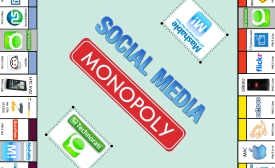twiplomacy

This new report from the Clingendael Institute assesses the field and functionality of digital diplomacy in today's domestic and international policy environments.

PD News highlights this week's triumphs and stumbles in communication and listening.
US President Barack Obama may have launched his official presidential Twitter handle @POTUS just two weeks ago, but he and other global leaders have been using the microblogging platform for years.
Prime minister Narendra Modi is the third most followed and fifth most influential leader globally, according to a new report called Twiplomacy 2015, a study of world leaders on Twitter Inc by global public relations and communications firm Burson-Marsteller. The study identified 669 Twitter accounts of heads of state and government, foreign ministers and their institutions in 166 countries worldwide to analyse each leader’s Twitter profile, tweet history, and connections with the others.

This article analyzes the effects and impact of new media technologies on traditional public diplomacy practices through the lens of the U.S. Embassy in China's use of the micro-blogging platform Weibo.
In the 1840s, after receiving his first telegram, then British foreign minister Lord Palmerston reportedly exclaimed “My God, this is the end of diplomacy!” Fast forward 170 years.(...) Diplomacy is not dead, but new messaging tools like Twitter are threatening to upend a tradition of carefully worded statecraft and protocol.







